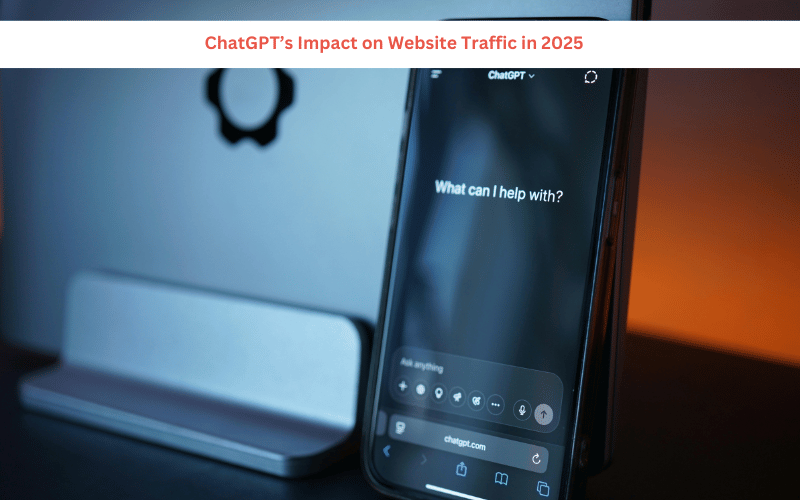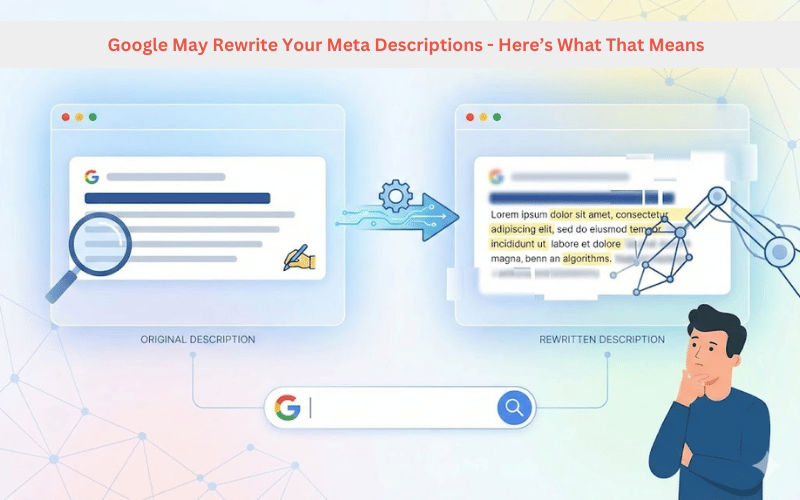The way people search and discover content has changed dramatically, especially with tools like ChatGPT emerging on the scene. In recent weeks, we’ve seen two major updates that savvy marketers and business owners need to understand: a sharp drop in traffic from ChatGPT referrals and a surprising privacy hiccup with shared ChatGPT conversations being indexed by Google. Neither development can be ignored, especially if you offer web marketing services in Canada, the US, or focus on technical SEO as part of your growth plan.
Here’s a friendly breakdown of what’s happening, what it means for your SEO strategy, especially in the realm of automated AI SEO, and how to adjust effectively.
1. ChatGPT Referrals Are Dropping Fast, Down 52% Since Late July
A recent analysis by Profound (cited in Search Engine Land) found that referral traffic from ChatGPT dropped by roughly 52% since July 21. That’s a dramatic shift in just a few weeks, and it signals that referral numbers from AI powered tools can be volatile.
Why is this happening?
OpenAI seems to be testing a shift away from “conversion-first content” and toward “answer-first content.” In practice, that means ChatGPT is increasingly drawing from sources like Reddit and Wikipedia, platforms that speak directly to user questions, rather than branded pages focused on conversions.
In fact, Reddit citations are up 87%, and Wikipedia is up 62% in share of all citations. These two, plus TechRadar, now account for 22% of all sources ChatGPT relies on, a sharp rise in just a month.
What does this mean for your business?
Suppose your content is built more to convert (think “Book a demo” or “Contact us”) than to answer questions clearly; you may now be losing out on AI referral traffic. The lesson? For content to show up in ChatGPT’s answers, it needs to address questions directly and thoroughly.
In simple terms, if your blog or service page isn’t written with clarity and depth, ChatGPT may simply skip you.
2. Google Was Indexing Shared ChatGPT Conversations, But Not Anymore
Another surprise came when we learned that Google was crawling and indexing public ChatGPT conversations, content users explicitly share, making prompts and answers visible in search results. That’s a privacy risk.
OpenAI quickly removed the feature and described it as a “short-lived experiment,” citing the risk of accidental data exposure. They’ve also started removing indexed content from Google.
Why does this matter for businesses?
Marketers and agencies often test ideas, prompts, or content outlines in ChatGPT. If these get shared even unintentionally, they could surface publicly and expose sensitive or proprietary information. It’s a privacy blind spot that underscores the need to treat ChatGPT like any other public forum when it comes to internal strategy.
Understanding ChatGPT’s Traffic Drop
AI tools now prefer answer-first content over conversion-driven pages. Discover how small tweaks can boost your presence in AI search.
3. The Bigger Picture: AI SEO Update and the Future of Referral Traffic
Across the board, AI-powered referral traffic continues to evolve. One study of 391 small and medium businesses (SMB) showed ChatGPT referral traffic grew by 123% from September to February. However, this growth is now being met with volatility, as the recent plummet shows.
This dynamic reflects the broader shift toward Automated AI SEO, where visibility isn’t just about ranking in Google but also about being referenced by AI systems like ChatGPT. As organic clicks drop due to AI summaries and AI SEO updates, tracking and optimizing for these new sources becomes essential.
4. What You Can Do Right Now to Adapt
Provide explicit, answer-first content
Build your content around answering specific questions—think “How to track ChatGPT traffic?” or “Understanding OpenAI’s citation shifts.” These are more likely to be picked up by AI overviews.
Use structured data and passages
Break your content into well-defined passages or chunks (micro-AEO) to improve visibility in AI search responses. In AI search, a single well-crafted paragraph may get cited.
Track AI referral traffic properly
Make sure your web analytics distinguishes ChatGPT and other AI referral traffic from regular channels. Use regex filters to group visits from GPT, ChatGPT, or OpenAI domains and tag conversions accordingly.
Focus on brand and trusted visibility
AI tends to favour authoritative, widely trusted sources. That means building brand equity, link presence, and maintaining consistent, high-quality content matters even more than ever as AI shapes visibility.
5. What does this mean for your SEO and Web Marketing Strategy?
- Automated AI SEO isn’t a gimmick; it’s becoming integral to digital visibility. You need to tailor content to answer AI-generated Web queries, not just rank for keywords.
- Technical SEO matters more than ever. From schema markup to passage structuring, every detail helps an AI better discover, credit, and display your content.
- If you’re providing web marketing services, helping your clients understand these shifts is key to optimizing content for AI SEO, which can become a competitive edge.
- The sudden shifts in ChatGPT traffic show how volatile AI referrals can be. Diversify content sources and formats to maintain steady visibility.
Losing Traffic from ChatGPT? Fix It Now
Referrals from AI dropped 52%—and you could already be missing out. Let’s update your SEO before competitors take your spot.
Final Thoughts
ChatGPT’s recent shift in referral patterns and OpenAI’s removal of indexed public chats are part of this new landscape.
For Canadian marketers, this means making a thoughtful shift in strategy: focus on clarity, trust, and adaptability. Monitor AI referral channels like ChatGPT closely and track changes. And embrace AI SEO updates as part of your long-term content and technical SEO strategy, not a fad.
Need help creating AI-friendly content or understanding how AI referrals fit into your web marketing plan? We’d be happy to help craft a strategy that keeps you ahead of the curve.











